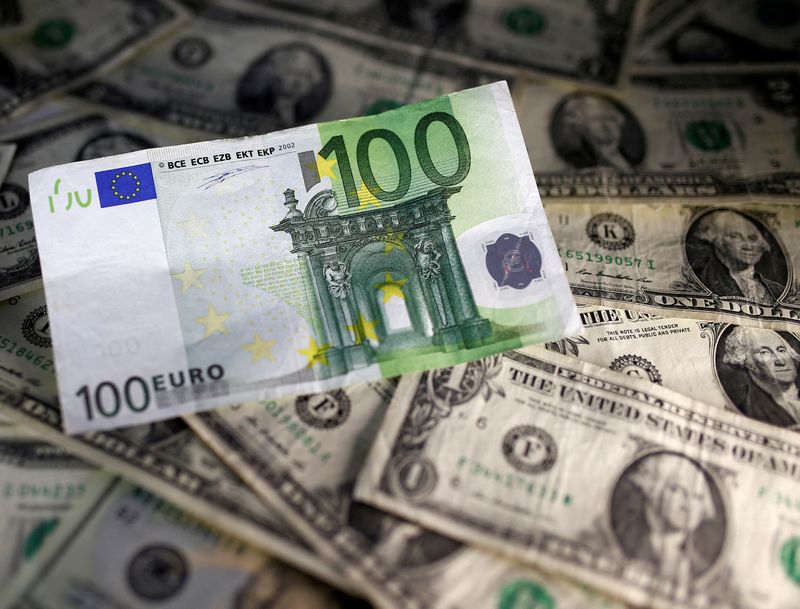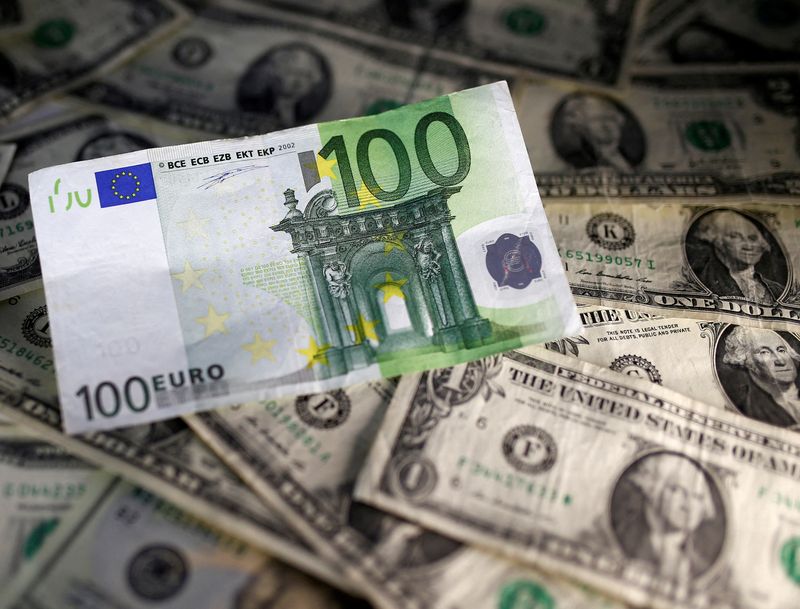
By Ankur Banerjee and Harry Robertson
SINGAPORE/LONDON (Reuters) -The euro picked up on Thursday despite the collapse of the French government, which had been widely expected, while bitcoin galloped past $100,000 for the first time and the yen rallied as traders looked to the Bank of Japan decision on Dec. 19.
Bitcoin, the world’s best known cryptocurrency, has been on a tear since November on expectations that Donald Trump’s U.S. election win will usher in a friendly regulatory environment for cryptocurrencies.
It rose to an all-time high of $103,619 in Asian hours, boosted by President-elect Trump’s nomination of pro-crypto Paul Atkins to run the U.S. Securities and Exchange Commission. It was last fetching $103,050, up about 5% on the day and taking its year-to-date gains to more than 140%.
“There’s reason to believe this thing could keep going,” said Kyle Rodda, senior financial market analyst at Capital.Com, stressing the friendlier regulatory environment.
The euro was up 0.16% at $1.0525, not far from the two-year low of $1.0332 hit at the end of November as traders braced for a drawn-out reckoning for France.
French lawmakers passed a no-confidence vote against the government on Wednesday evening, throwing the country deeper into a crisis that threatens its capacity to tame a massive budget deficit. The risk premium – or spread – investors demand to hold French debt over German has risen to around its highest since 2012.
The euro managed to rise despite the uncertainty because the collapse of the government was already priced in, said Lee Hardman, senior currency analyst at MUFG.
“The contagion outside of French markets is fairly limited. If you look at the spreads between (German and) Italian and Spanish bonds they’ve actually been falling, so it’s not spilling over into European markets and that limits the implications for the European economy,” he said.
Traders are all but certain the European Central Bank will cut rates next week and are pricing in around 157 basis points of easing by the end of 2025.
YEN GAINS GROUND
In Asia, the Japanese yen strengthened over 0.3% to 150.80 per dollar as traders assessed whether the Bank of Japan will hike interest rates later this month.
Analysts said comments from typically dovish policymaker Toyoaki Nakamura that he’s not opposed to rate hikes had helped push the currency higher.
Expectations had been growing that the BOJ will hike rates at its Dec. 18-19 meeting, buoyed by comments from Governor Kazuo Ueda. But media reports published on Wednesday suggested the BOJ may skip a rate hike this month, muddling those wagers.
The South Korean won dipped slightly as the nation’s finance ministry said the government would activate 40 trillion won ($28.35 billion) worth of market stabilization funds after the chaos that followed President Yoon Suk Yeol declaring martial law on Tuesday and then rescinding.
The dollar index, which measures the U.S. currency against six rivals, was slightly lower at 106.18.
Sterling ticked up 0.15% to $1.2721, while the Australian dollar was flat at $0.6431 after dropping about 0.9% in the previous session on weak data.
Federal Reserve Chair Jerome Powell said on Wednesday the U.S. economy is stronger now than the central bank had expected when it started cutting rates in September, and he appeared to signal his support for a slower pace of reductions ahead.

Bets on Fed rate cuts held broadly steady, however, perhaps influenced by weaker-than-expected services sector data released on Wednesday. Markets are pricing in about a 74% chance of a 25-basis-point rate cut later this month.
The spotlight will be on Friday’s U.S. non-farm payrolls report for November, which is expected to show 200,000 jobs added in the month, according to a Reuters survey, after only 12,000 jobs were created in October, the lowest number since December 2020.
This post is originally published on INVESTING.


